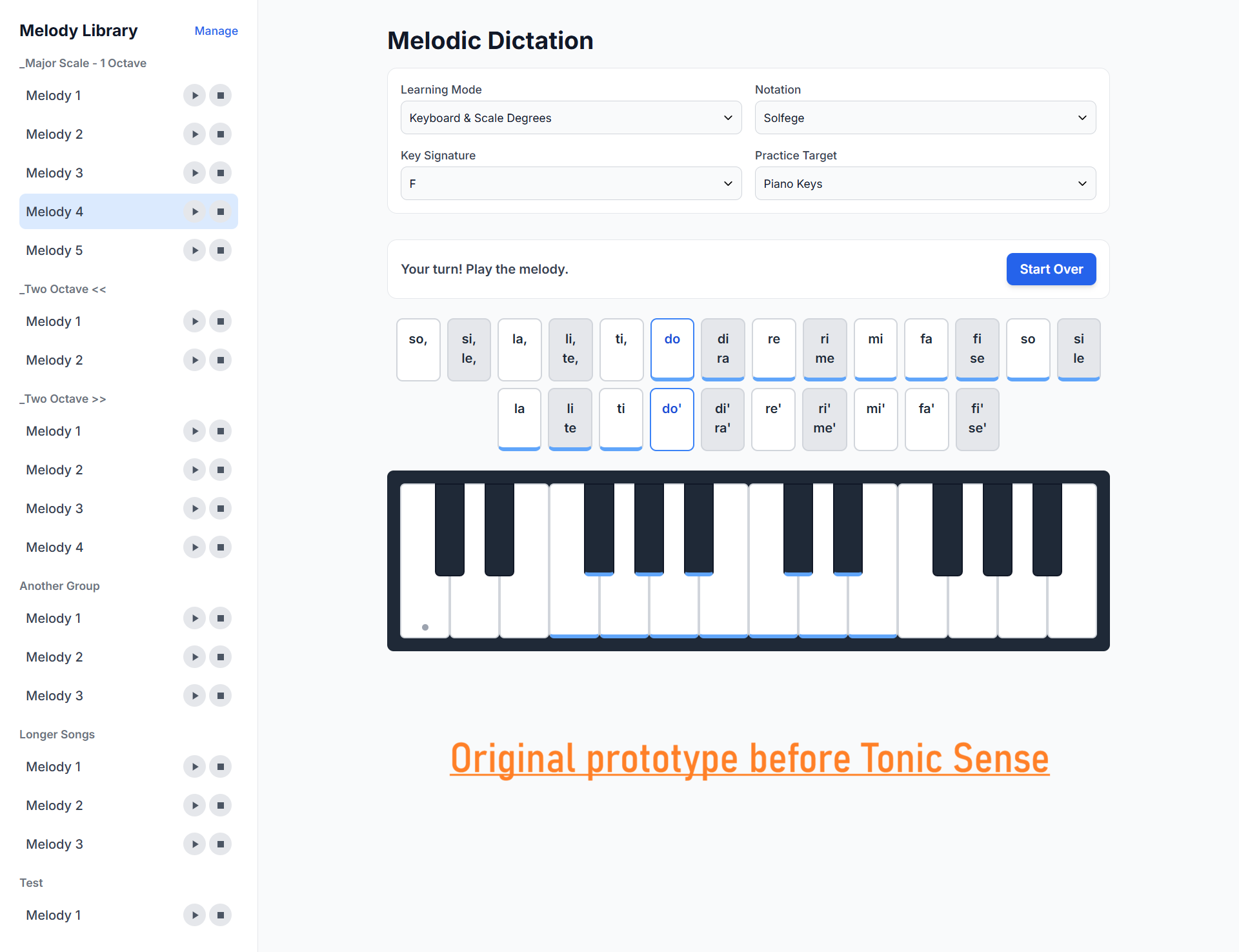Solfege Melodic Dictation: Why I Built a Piano-Based Ear Training App
Maybe five years ago I was trying to learn intervals using an app called Functional Ear Trainer. It worked pretty well for me -- I could recognize intervals reliably after working through their lessons. But intervals aren't melodies, you know? I wanted something that would play a bunch of notes in a row so I could practice figuring out what I was hearing.
The Problem with Existing Melodic Dictation Apps
Turns out there are plenty of apps that do that. The problem was they all played random notes. Which makes sense if you're trying to test yourself, but I found it exhausting. Nothing recognizable, nothing I could latch onto. Just... noise that happened to be in a scale.
I kept looking and eventually found Solfetta, which was a web app and the best thing I'd seen so far. It actually played real tunes -- children's songs, folk songs, things with structure that were recognizable. But I didn't just want solfege melodic dictation exercises—I wanted melodic dictation piano practice where I had to play what I heard on a keyboard in any key demanded of me.
For a while I just lived with it. Lying in bed at night, thinking of tunes and singing them to myself in solfege syllables, and thinking about keys and fingering. Used what was available and figured that was good enough.
Building My Own Solfege Melodic Dictation Tool
Earlier this year I needed a Chrome extension for something completely unrelated (I don't even remember what now). I'd been hearing about AI coding assistants and decided to see if they could help me build it. I used to work in software, but my technical knowledge is very out of date. Like, ten years out of date. And coding, more like 30 years ago. I figured I had nothing to lose.
Most solfege melodic dictation apps focus only on singing back the notes. Few melodic dictation piano apps existed that combined both elements—recognizing the melody AND playing it on a keyboard. That's the gap I wanted to fill.
Turned out the AI could do it. I got my Chrome extension working, which made me think... maybe I could build that melodic dictation app I actually wanted. So I tried. And it worked. Not beautiful, not polished, but functional. I could play myself a snippet of "Amazing Grace" or "Jingle Bells" and practice clicking it out on a piano keyboard onscreen.

Once I had something that worked for me, I started thinking about making it nicer. Adding more features. Prettying it up enough that other people might want to use it too. Making it somehow fit on a phone. Because I bet I'm not the only person who got tired of random note generators and wished for something with actual melodies.
A Melodic Dictation Piano App That Actually Works
That's basically it. I built it because I wanted it and couldn't find it. The AI made it possible for someone like me (whose coding knowledge stopped being current around the time Windows 95 came out) to actually make something that works.
And now it exists, as Tonic Sense, so maybe someone else will find it useful.